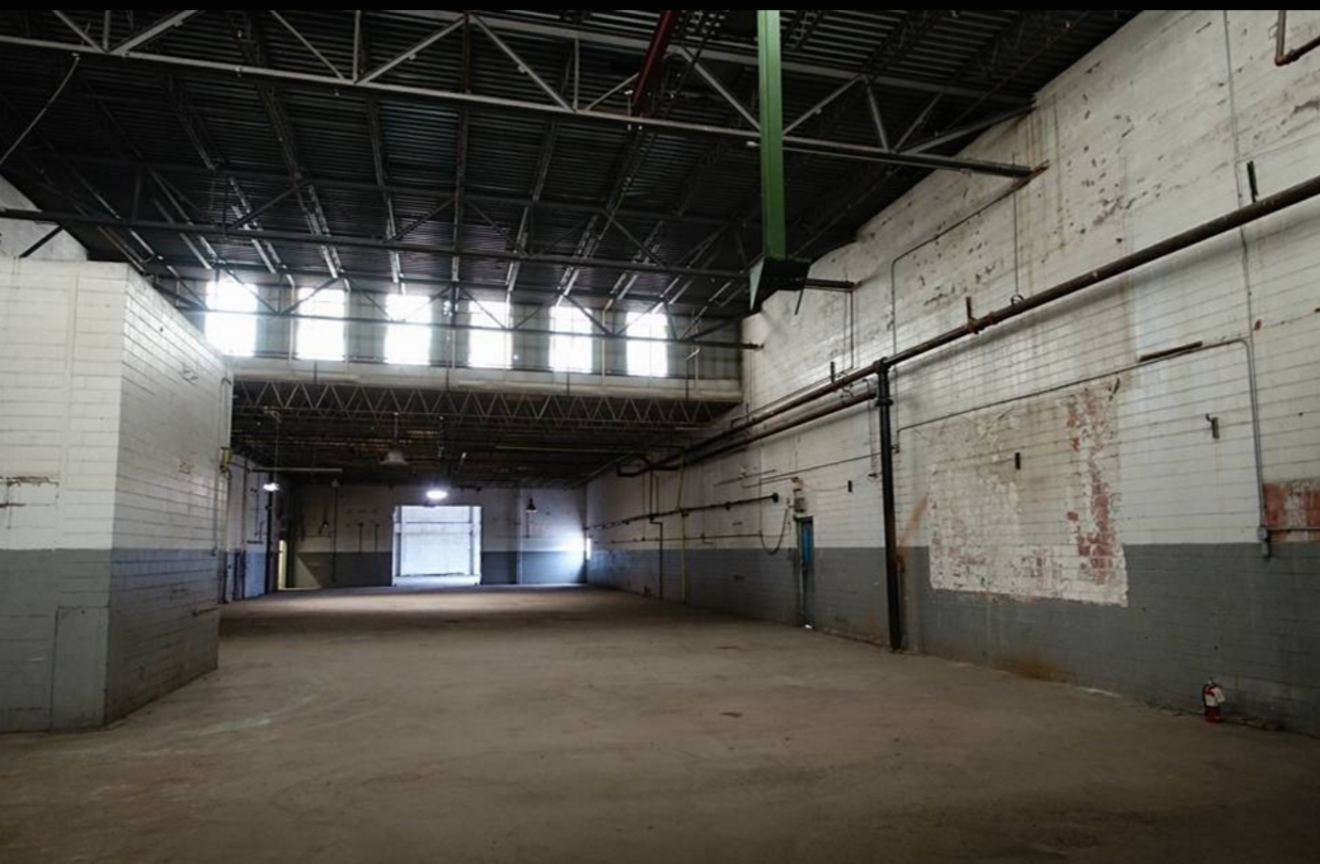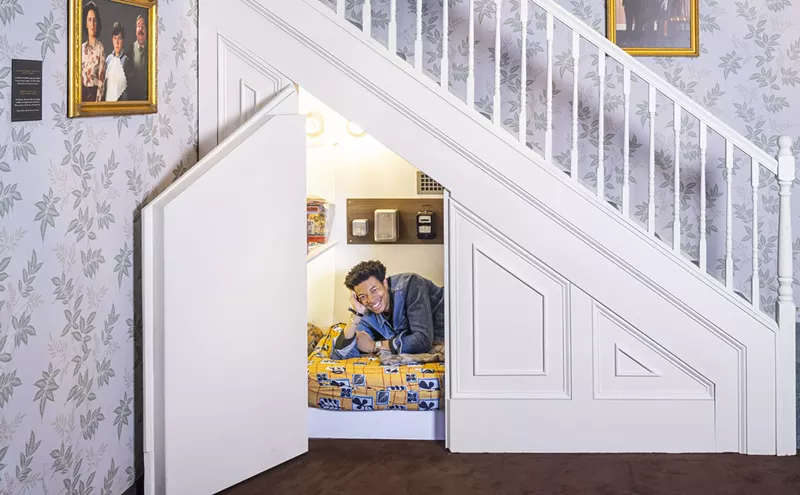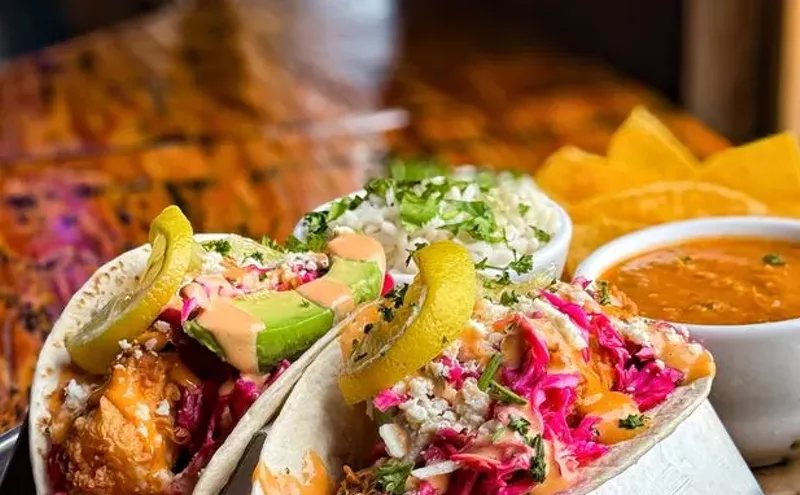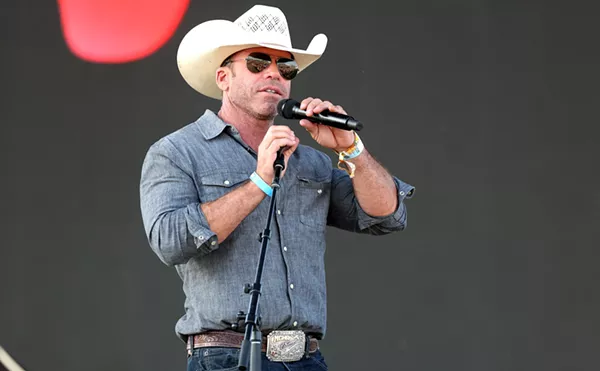“This is designed to be a collaboration of small businesses,” Anderson told the Observer. “We want people to see what other people are doing. Small entrepreneurs, they need tools and they need resources that they can’t afford to have on their own. What we’ve created is a space for natural integration to happen.”
That natural integration is the calling card of the coworking environment, the latest real estate trend to hit Dallas-Fort Worth. Tyler Station will be a home to possibly hundreds of artists, entrepreneurs and businesses large and small and as of now is already housing companies like the Oak Cliff Brewing Co. and Stash design, a firm owned by Anderson’s partner Gary Buckner.
Anderson is still sorting through a pile of lease applications that have flooded in since Tyler Station’s first open house on Jan. 7, which Anderson says nearly 500 members of the neighborhood attended. Businesses and entrepreneurs will be able to secure space inside the still developing village for as little as $600 a month and have access to collaborative work space just steps away from DART’s Tyler/Vernon station.
“When the butcher, the baker and the candlestick maker own their own property and now they have an asset, they have wealth,” Anderson says. “This is not new stuff, I’m not inventing anything. People used to, when the barn burned down in your community, what happened? Everybody came together and rebuilt the barn. This is what this is all about.”
This concept is not new; in fact, since 2014, coworking spaces have rapidly developed all across Dallas. With memberships ranging from $25 to $1,000 a month, they offer a wide range of services and flexibility for members, who are usually also granted access to networking events, free amenities such as high speed internet and P.O. boxes. Most of these spaces also offer mentoring for those new to running their own business or who need help expanding into larger companies. All of these services are intended to bring individuals from different fields together in an environment that encourages community, networking and lowers the barrier to entry for members of the new mobile workforce.
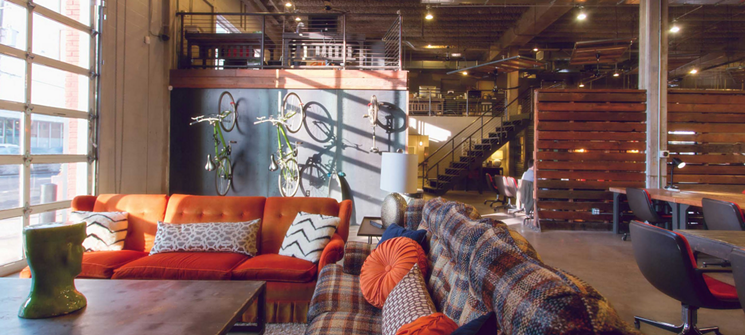
The Common Desk's location in Deep Ellum. The chain just announced it would open its third and largest coworking space in Plano.
That mentality seems to differ in many ways when looking at some of the different kinds of coworking spaces here in Dallas. They range from more open and inclusive spaces like Common Desk to small business and start-up incubators like GeniusDen, which opts to forgo equity in the companies under its roof for rent and supports them through mentoring and strategic partnerships with investors.
“The old model for corporations is the smartest guy in the room has all the ideas and everyone else does what they’re supposed to do,” Joe Payton, founder of GeniusDen, said in one of the Airbnb rooms at the incubator’s 10,000-square-foot location. “In the new model you’re really harvesting the diversity and the value and the intellect and the human capital that comes into the room with every person that enters that door.”
Other spaces like The Grove in downtown Dallas and the Fair Park District Entrepreneur Center look to house and support nonprofit and for-profit companies that are geared toward social impact projects. “The District” is a planned mixed-use coworking space funded through the United Methodist Church’s North Texas Conference as part of the Zip Code Connection.
It’s expected to open sometime this spring and is looking to revitalize the black former middle class of Fair Park by both helping legitimize the neighborhood’s home-based service providers and businesses and offering the same collaborative environment and mentoring opportunities as a coworking space.
“This is the neighborhood that dealt with bombings over housing, this is a neighborhood that dealt with a whole host of things racially and they overcame it to be the black middle class, and so here it is today where it is devastated by generational poverty,” George Battle III, director of Zip Code Connection for South Dallas Fair Park, says. “It’s community first here; I just want to magnify that.”
The main commonality between many coworking spaces is their entrepreneurial spirit and commitment to investing in communities. By offering a community’s residents access to professional office space in a free-flowing environment for relatively little money and hassle compared to other office suite providers, Dallas’ coworking spaces are allowing citizens to bet on themselves and try their hand at self-employment without the risk of long-term lease agreements or costly upkeep. And at the same time Dallas-based small businesses will begin to flourish in these diverse environments.
“One of the things we don’t do well in Dallas I think is we really don’t encourage wealth building from the minority or lower income and lower middle class communities,” Anderson says. “If I create a job, I create one job, if I create an entrepreneur I create three-point-four jobs. … Some people work for years to get businesses started and they never get them started and then they lose hope. This is about creating hope; this is about giving people hope and giving them a place to test their wares.”

